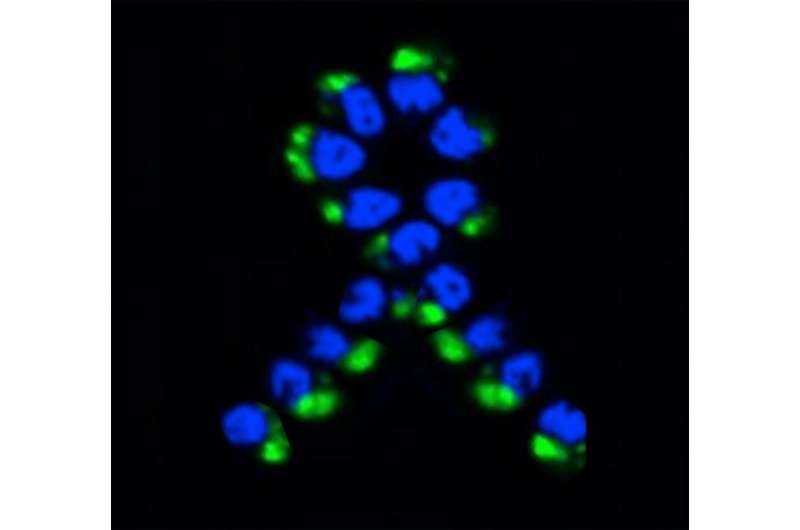Parasite proteins prompt immune system to fight off ovarian tumors in mice

Scientists identified the specific proteins secreted by the parasite Toxoplasma gondii that cause the immune system in mice to attack established ovarian tumors. The study, led by David Bzik of the Geisel School of Medicine at Dartmouth in Hanover, New Hampshire, is published on July 22 in PLOS Genetics.
One promising strategy in the fight against cancer is to use the body's own immune system to remove tumor cells, but due to a phenomenon called immune tolerance, the immune system has a difficult time identifying which cells to attack. In the new study, scientists built upon previous discoveries that a safe, non-reproducing vaccine strain of T. gondii could cure mice of several types of solid tumors, and identified which parasite proteins and which immunological pathways are required to break immune tolerance.
They systematically deleted genes for secreted effector proteins—molecules that the parasite injects into a host cell to modulate the immune system during infection—and injected the altered parasites into mice with aggressive ovarian cancer. Their results demonstrate that specific rhoptry and dense granule effector proteins that T. gondii secretes before and after host cell invasion, respectively, control the development of an effective host antitumor response, and increase the survival of mice with ovarian tumors.
Using infectious organisms to break tumor immune tolerance may be an excellent therapeutic option for treating cancer in the future. Currently, the use of the bacterium Listeria monocytogenes to break the immune tolerance of pancreatic tumors is being explored in clinical trials and T. gondii may be similarly useful. By tracking and understanding which host cell pathways are manipulated by these T. gondii proteins, scientists can identify potential new targets to develop more effective therapies against highly aggressive solid tumors.
More information: Fox BA, Sanders KL, Rommereim LM, Guevara RB, Bzik DJ (2016) Secretion of Rhoptry and Dense Granule Effector Proteins by Nonreplicating Toxoplasma gondii Uracil Auxotrophs Controls the Development of Antitumor Immunity. PLoS Genet 12(7): e1006189. DOI: 10.1371/journal.pgen.1006189

















